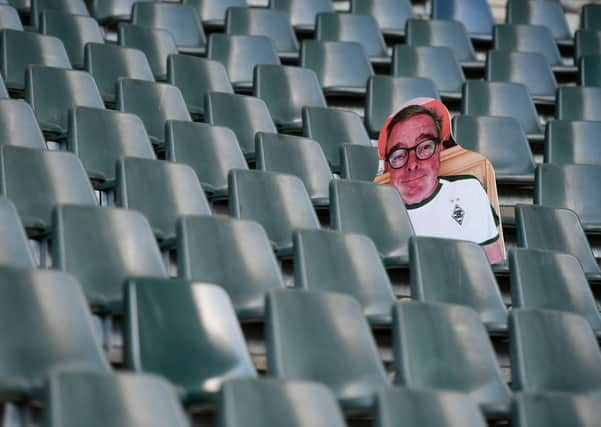When each country plans to start playing football again


ENGLAND
The fear that broadcasters could seek to claw back £762 million through any curtailing of the season underpins the determination of the English Premier League to finish the season on the pitch. Liverpool were 15 points clear with nine games to play at the shutdown. It is accepted that mass testing would require to be in place for the games to be completed, behind closed doors, by 30 June. It is a highly optimistic target date, but the EPL appears unwilling to countenance that the government could refuse to sanction even closed-doors games before mid-June.
SPAIN
Although Spain has the third-highest number of deaths to Covid-19 globally – 21,717 – a plateauing of new cases has encouraged the football authorities to believe that football could resume next month. At the weekend, La Liga clubs were informed they could shortly return to training provided they comply with the health protocols laid out by the Spanish government which is beginning to ease some lockdown restrictions. However, these tentative first steps contain no guarantees for completing a league in which Barcelona lead Real Madrid by two points with 11 games to play.
GERMANY
Advertisement
Hide AdAdvertisement
Hide AdMoney is driving the desperation to have the Bundesliga operational again – and it is claimed it could restart with games behind closed doors from 9 May. There are fears that failing to play the remaining game would lead to £700m losses from broadcasting and commercial contracts that could render more than half of the clubs in the top two divisions insolvent. The nation is better placed for a return than any other major league. Mass testing rates have long been in the region of 100,000-a-day (in the UK the figure is under 19,000) and the country has the lowest number of deaths per capita of any liked-sized European country, this currently standing at 5,127. Germany has banned mass gatherings until late October.
ITALY
Sports minister Vincenzo Spadafora, pictured, has said a decision will be made “in the coming days” on whether the country’s football clubs can return to training amid the coronavirus pandemic. The outbreak hit their nation harder and earlier than elsewhere in Europe – with the 25,085 death toll second only to the US – but the 20 Serie A clubs voted unanimously on Tuesday to complete the Italian league season. The plan for a campaign in which Juventus top the table by a point from Lazio with 12 games remaining is for small group training to begin on 4 May, and matches – behind closed doors – to start around four weeks later.
FRANCE
The French league’s administrative council unanimously voted on 10 April to consider resuming on 17 June and concluding the games by 25 July. In that hypothetical scenario, next season would start on 22 August. However, with the country remaining on full lockdown, doubts have been cast on this timescale, not least by the French players’ union UNFP. It stated that 75 per cent of its membership fear getting injured if the league resumes with a packed schedule, and are worried about the virus spreading. “A return to competition seems difficult to envisage at this stage,” the UNFP said in a statement. “However, if in the days ahead all the doubts can be removed to allow a resumption in the best conditions, the UNFP obviously won’t oppose this.” Leaders Paris Saint-Germain and mid-table Strasbourg have 11 games to play while the rest of the league have ten.
NETHERLANDS
The Dutch federation is looking at ways to call the season on current standings. It follows Uefa softening its stance this week over the possibility of member associations being denied entry to the Champions League and Europa League in the event of ending their seasons unilaterally. Uefa has said it will consider “special cases” and the Dutch FA considers it comes into this bracket after large scale gatherings were banned in Holland until 1 September.
The Dutch football federation published a statement saying it planned to end the 2019-20 season and would consult with Uefa. The Eredivisie said clubs would speak on Friday “about the consequences of the decision.” When the league was suspended, Ajax topped the standings ahead of AZ Alkmaar on goal difference, with both set to advance to the Champions League qualifying rounds.
BELGIUM
The Belgian Pro League were the first on the continent to declare their season, announcing the decision three weeks ago. They initially received strenuous pushback from Uefa, but it is now expected that its proposal to name Club Brugge as champions will be accepted following today’s meeting of Uefa’s executive committee.
GREECE
With the country one of the least severely affected – to date, 121 deaths have been recorded – the Super League is hopeful of resuming to complete the play-off split stage of the season for title and relegation in June, predicated on teams return to training in May. The intention is to complete the campaign in July. Panathinaikos – fourth and 22 points behind leaders Olympiakos when the shutdown came in mid-March – initially pushed for cancelling the season, but Uefa’s directive about playing out leagues saw this taken off the table.
Comments
Want to join the conversation? Please or to comment on this article.